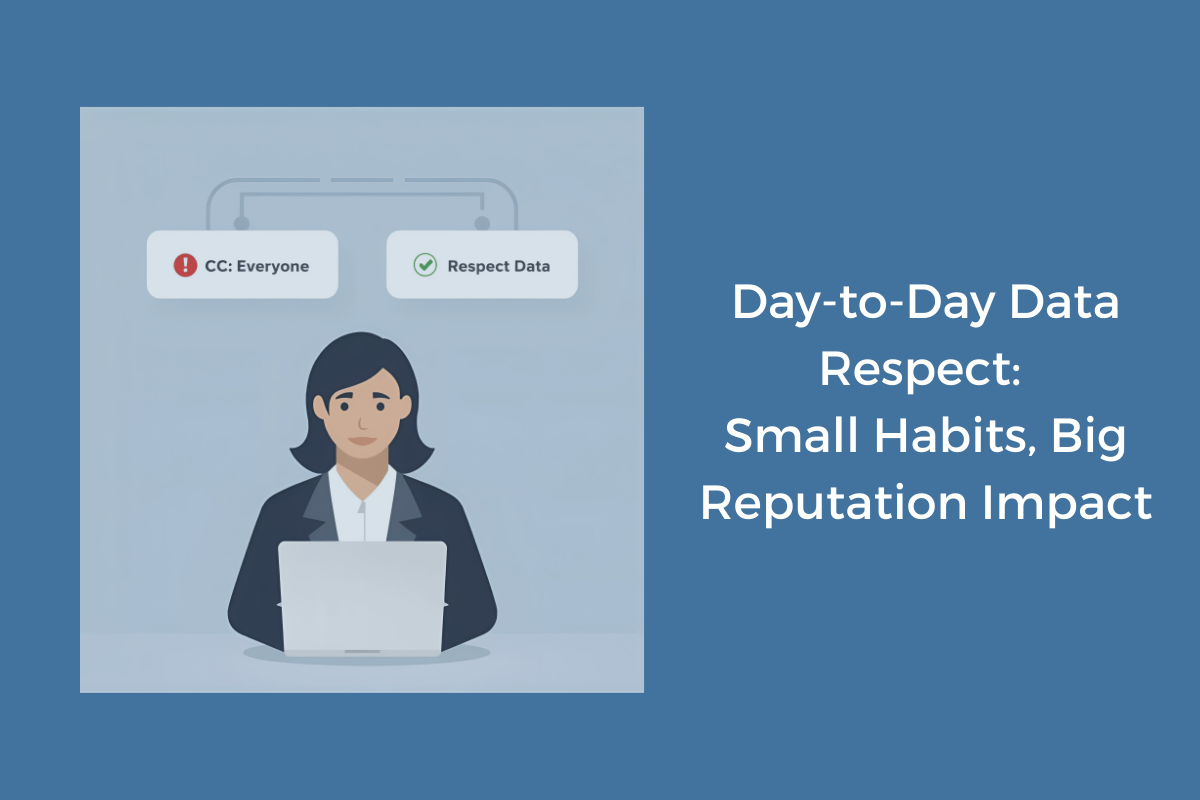Respecting data is not just a compliance issue—it’s a reputation issue.
In today’s environment, where trust is fragile and scrutiny is high, businesses cannot afford to treat everyday data handling as an afterthought. While major data breaches make headlines, it’s the small daily lapses that quietly erode credibility and damage relationships with clients, media, and partners.
Why data respect matters for PR and reputation
Your audiences—whether customers, employees, or journalists—expect you to handle their information with care. Any sign of carelessness signals disregard, and that undermines trust. For small businesses and startups in the Middle East, where word-of-mouth and networks matter, a single slip can echo far beyond the incident itself.
The silent offenders in daily communications
You don’t need a cyberattack to lose credibility. Everyday practices can send the wrong message:
- Visible-to-all CCs: Copying everyone into emails without using BCC not only exposes addresses but also makes your company look careless. Research shows that CC’ing unnecessarily, especially senior managers, makes employees feel less trusted and undermines workplace relationships.
- Meeting recordings without consent: Recording a Teams or Zoom call without asking permission signals disregard for privacy and leaves participants uneasy. A recent study emphasises that without clear policies and consent, recordings can erode trust and engagement.
- Sloppy mailing list hygiene: Adding contacts without consent (my personal bug bear), failing to update opt-out requests, or repeatedly spamming outdated lists risks both regulatory penalties and reputational fallout. Poor list hygiene also hurts performance—invalid or disengaged contacts drag down open rates, trigger spam filters, and damage sender reputation.
These may seem like small oversights, but they add up—and stakeholders do notice.
Data respect as a PR asset
Handled well, data discipline can be a differentiator. Journalists (and your entire business ecosystem for that matter) will trust you more if you treat their contact details with discretion. Clients will feel safer knowing their conversations aren’t casually recorded. And prospects will notice that your emails are relevant rather than intrusive.
Practical tips to build a culture of data respect
- Think before you CC: If your update is meant for a broad audience, use distribution lists or blind copy. Reserve direct CCs for those who truly need to be involved.
- Ask, don’t assume: Before recording a meeting, ask for consent. A simple “Do you mind if we record this?” demonstrates respect and protects trust.
- Audit your mailing lists regularly: Remove inactive contacts, honour opt-outs immediately, and ensure you have explicit consent before adding new names.
- Train your team: Make data respect part of onboarding and regular refreshers. People mirror what leadership prioritises.
- Link policies to reputation: Don’t just frame it as compliance—help your team understand that each small action shapes how clients and media perceive your brand.
In short, building habits of data respect is a low-cost, high-impact way to reinforce your credibility. Every small step you take protects—and strengthens—the reputation you’ve worked hard to build.



